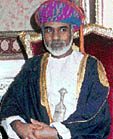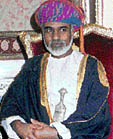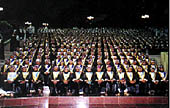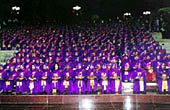
Oman, Laudable Strides Towards a Better Tomorrow [Archives:1999/49/Culture]
December 6 1999
By: Imad Al-Saqqaf
Taiz Bureau Chief
Yemen Times

On July 23,1970, Oman entered a new era of its history. Since that date the country left the desert style of life and headed for the life of progress and development so that it has become on the same footing with and matching the advanced countries.


In education, the Omanis have exerted big efforts to acquire modern technology and manage to use computers and the Internet in their schools. And to give an example, the number of schools in Oman has risen from 3 in 1969 to 970 in 1998-99 and scheduled to rise to 1,045 in the year 2000. There are now 528,358 students studying at public schools and 23,560 students in private schools. The Number of hospitals has now risen to 47, in addition to 7 health complexes and 110 health centres.
Oman’s economy has made a big leap in quantity and quality at annual development rates considered to be among the best in the world. There is a noticeable increase in contribution of non-oil sectors in gross domestic product as part of diversification policy in resources of the national income.
Tourism constitutes an important factor of the Omani upswing especially in that the country possesses many tourist constituents represented in folkloric traditional arts that could be an element of attraction for tourists from various parts of the world. The historical sites in Oman form one of the most beautiful attractions of tourism in Oman.
As for the communication sector, the total length of roads amounted to 6,329 kms in addition to finishing a project of building a 245km long road linking the border areas of Oman to the republic of Yemen to be a means for maintaining and strengthening trade relationship between the two peoples.
Oman’s foreign policy is characterised by establishing good diplomatic relations with all countries of the world. Recently Sultan Qaboos of Oman was awarded the prize of world peace in acknowledgment of his role in serving regional and international peaceful issues.
——
[archive-e:49-v:1999-y:1999-d:1999-12-06-p:./1999/iss49/culture.htm]


